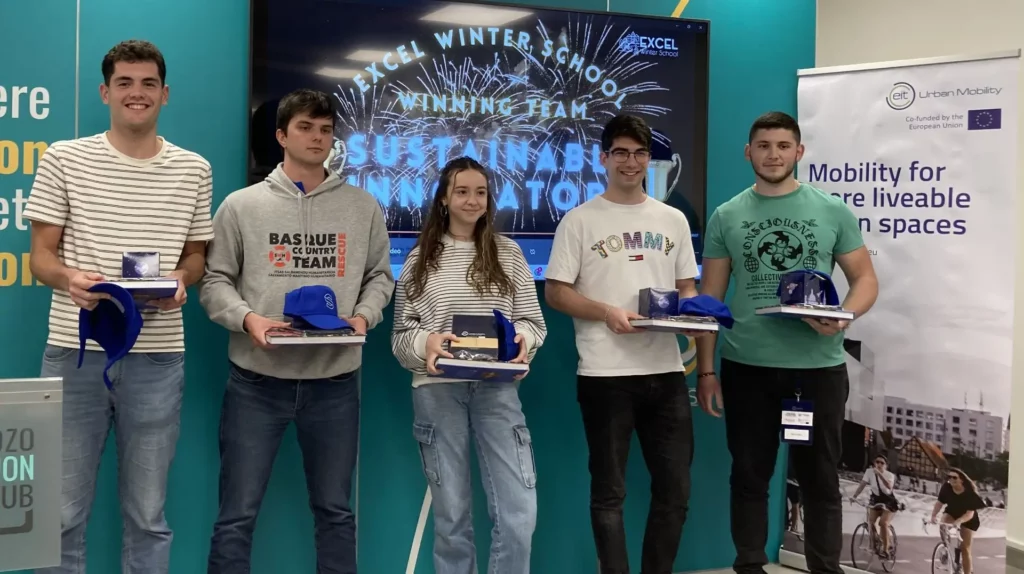A project to transform the fleet of vessels operating between Malta and Gozo to run on hydrogen has been named the best out of nine proposals put forward by students during the EXCEL Winter School 2024. The school, attended by more than 40 students from 5 countries across Europe, had the specific purpose of finding solutions to urban mobility challenges identified by the Gozo Regional Development Authority.
Organised by EIT Urban Mobility, an initiative of the European Institute of Innovation and Technology (EIT), a body of the EU, in collaboration with MCAST, Cleantech Bulgaria, and Project Aegle Foundation, the final pitching event of the EXCEL Winter School was judged by a panel including representatives from the Gozo Regional Development Authority, Transport Malta, Bajada Lyons Group, SuperCharger Ventures and the Gozo Tourism Association. The event was also attended by Hon. Clint Camilleri, Minister of Gozo and Planning.
Other proposals which received recognition at the end of the weeklong initiative also focussed on making the ferry journey between Malta and Gozo more sustainable. These included electric ferries and ways to introduce more renewable energy into the fleet. Students also focussed on how to make mobility within Gozo easier and more sustainable through new routes and a better mix of transport incorporating smaller buses, bicycles and the introduction of a waterbus service between Marsalforn, Xlendi and Mgarr Harbour.
Diana Miceli, EIT Community RIS Hub Malta Officer said, “Huge congratulations to Sustainable Innovators, the winners of this year’s challenge and to all the participants who put forward such great ideas which can have a real impact on making urban mobility in Gozo and between Malta and Gozo better and more sustainable. Bringing together such a diverse group of students to focus on specific challenges is a wonderful experience for them but also highlights the practical benefits of encouraging innovation. We look forward to repeating the success of the EXCEL Winter School in the future and to seeing some of the ideas put forward taken on by the relevant authorities.”
Pelin Uner, Project Lead of EXCEL Winter School from MCAST, highlighted the success of this year’s programme, emphasising the significant impact of challenge-led learning on fostering innovation. “In collaboration with EIT Urban Mobility Master School, MCAST remains dedicated to pioneering educational approaches that empower students to tackle real-world issues, particularly in sustainable urban mobility. The students’ proposals for Gozo demonstrate the effectiveness of blending academic rigor with practical problem-solving. MCAST is committed to nurturing innovative thinking in fields like urban mobility, aiming to equip future leaders with the skills and mindset for positive community change. Examples such as the hydrogen-powered ferries showcase how challenge-based learning leads to impactful, sustainable solutions. MCAST looks forward to continuing this journey, fostering the next generation of urban mobility innovators,” she said. The Excel Winter School in Gozo has been part of the EIT Urban Mobility Winters School Series designed for Bachelor students within the urban mobility field from RIS (Regional Innovation Scheme) countries. Other two winter schools were: Innov4Mobility Winter School, celebrated in Aveiro, Portugal, and performed together with BGI and Technical University of Berlin, and WINSCOOL Winter School, that was held in Tartu, Estonia by Kimitsk B.V. and University of Tartu. All the winter schools share a common mission: to empower the next generation of leaders in urban mobility with the knowledge, skills and mindset to drive positive change.

